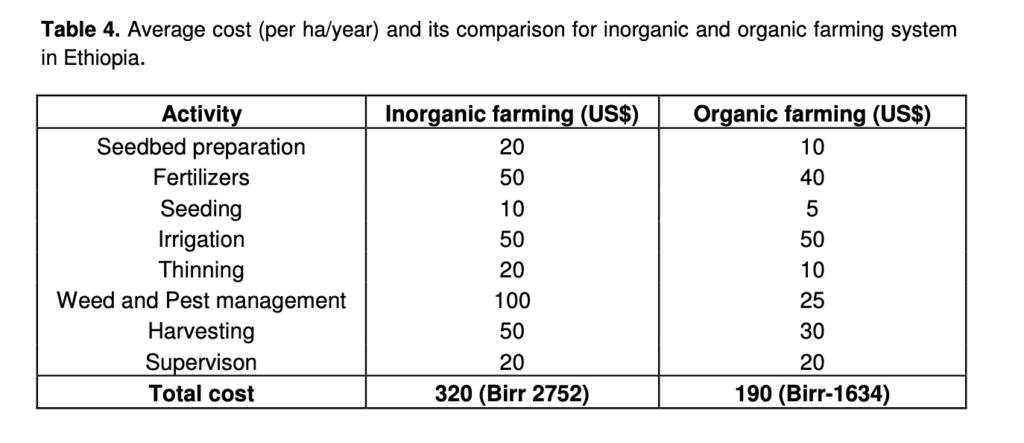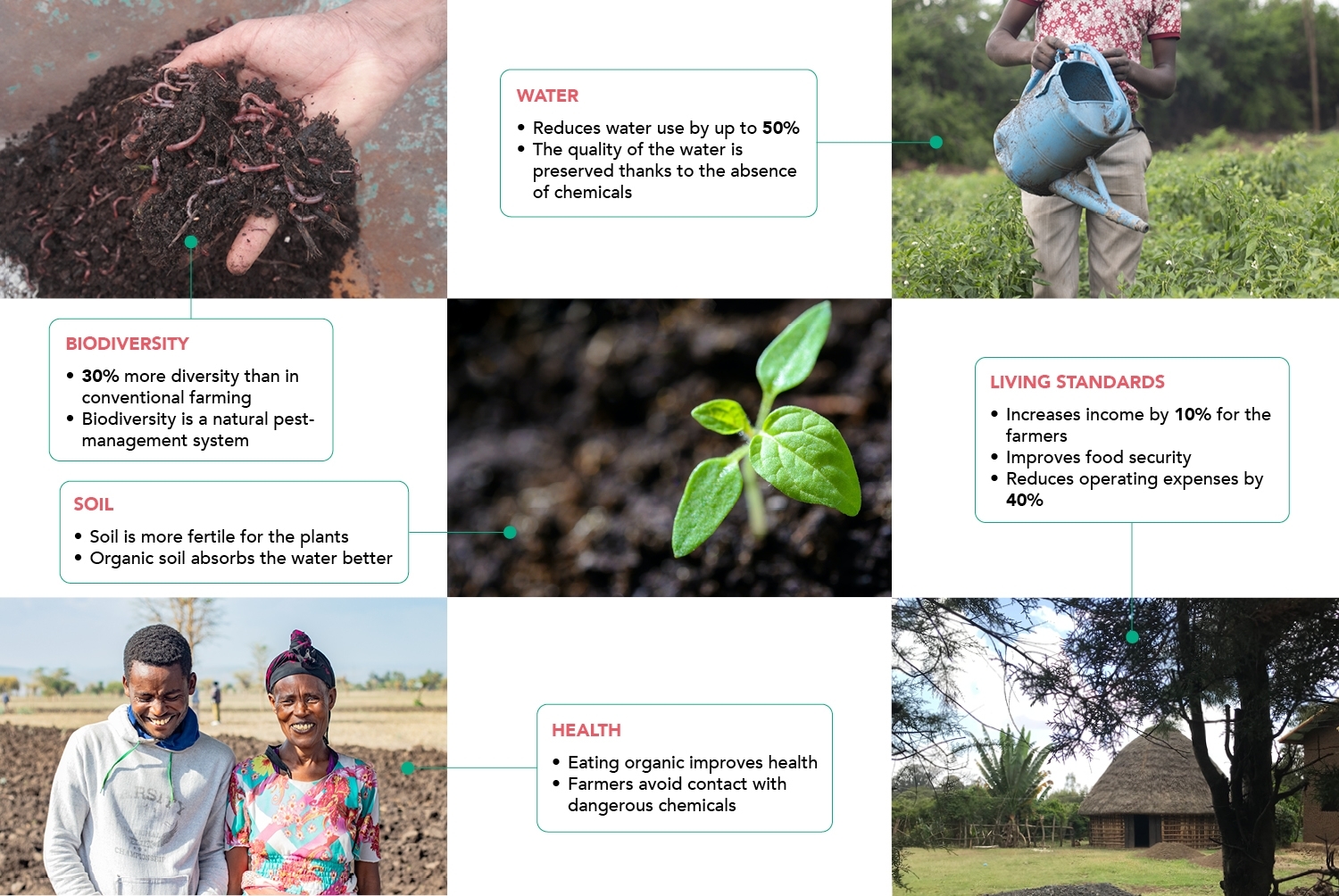
We believe that we can all act in favor of sustainable development and want to share our ideas with young people.
We are alarmed by the shrinking biodiversity, lack of vital resources, such as clean water and fertile soils, in many regions of the globe. We can already observe the negative consequences on the living conditions and food security for millions of people.
Could this reality check lead to fatalism? Not for us! We strive to help young people to broaden their horizons, share our passion for organic farming and prosper with their families and communities. We believe that vocational education and training is the right tool to effectively equip young people with a combination of the practical skills and theoretical knowledge needed in the reality of today’s labour markets. We also believe that entrepreneurial skills are a necessity to identify market opportunities, create businesses (and jobs), and to ensure financial self-sufficiency.
Why Organic Farming?
Organic farming not only improves the environment and biodiversity, but also benefits farmers. This alternative to conventional agriculture holds the promise of a healthier world for future generations.
Today we know that conventional agriculture is one of the main drivers of biodiversity loss in the world. According to a study by the Intergovernmental Panel on Climate Change (IPCC), 21 to 37% of greenhouse gas emissions are caused by our food system.
While conventional agriculture is driving down the level of biodiversity worldwide, it has been proven that organic agriculture, on the contrary, increases this biodiversity. According to INRAE (National Institute for Agricultural Research), “plots of land cultivated in organic agriculture would support levels of biodiversity about 30% higher than fields under conventional agriculture”.
Organic farming is also much healthier. Indeed, organic farming bans the use of chemical pesticides, whereas intensive agriculture uses more and more of them (+73% increase in pesticide use worldwide between 1990 and 2015, again according to INRAE). In addition to improving consumer health, not using chemicals protects soil and water quality.
Finally, organic farming also benefits farmers and the economy in general. Indeed, organic farming consumes less energy, implements a circular system of resource reuse and allows for higher yields for farmers. It has been proven that investments in organic farming are lower than on farms using chemicals (see table below). Moreover, according to a UN study, organic farms create 30% more jobs per hectare compared to conventional farms.
 « Organic farming and sustainable development in Ethiopia », Scientific Research and Essay Vol. 2(6), pp. 199-203, June 2007
« Organic farming and sustainable development in Ethiopia », Scientific Research and Essay Vol. 2(6), pp. 199-203, June 2007

Why we chose to work in Ethiopia
- For its promising market conditions, access to the dynamic and growing capital.
- For its favourable weather conditions, adequate water, fertile soils and agricultural traditions.
- Existing and growing demands for organic vegetables and herbs.
- Ethiopian soil is very fertile.
- 80 percent of Ethiopians are farmers.
